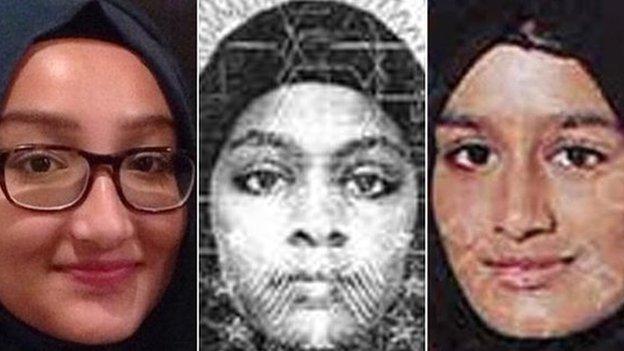Turkey says Syria Britons can be stopped - with UK help
- Published
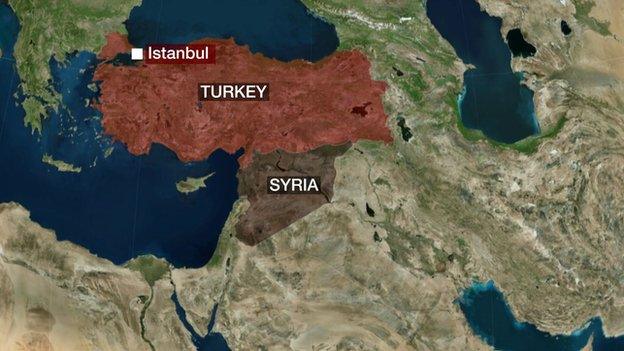
Turkey's border with Syria is 911 kilometres long
Both British and Turkish authorities have been criticised for failing to prevent hundreds of young men and women travelling to Syria to join Islamic State.
While Saturday's detention of three Britons in Turkey has been hailed as a breakthrough, one Turkish official told the BBC more could be done to prevent the flow of foreign fighters into Syria.
Three young British men, two 17-year-olds and a 19-year-old, have been released on bail from a London police station having been detained in Turkey, allegedly on their way to Syria.
They were held and returned to the UK after British police alerted the Turkish authorities.
Speaking to the BBC on the condition of anonymity, a senior Turkish official said: "This is a good and a clear example of how the security co-operation between Western intelligence agencies and Turkey should work."
The news follows the disappearance of three British school girls who are thought to have made their way into Syria through Turkey last month.
France's most wanted woman, Hayat Boumeddiene, the widow of one of the Paris attackers, is also understood to have travelled to Syria through Turkey.
Turkish border control
Turkey's border with Syria is 911 kilometres long. At some points, the border bisects towns and villages, and families have relatives on both sides of the divide.
Islamic State (IS) controls a significant part of this border, including the crossings at Jarabulus and Tal Abyad.
The distance between Turkish control and IS areas is often less than a few hundred metres.
The official argued that in addition to the long border, 38 million tourists visit Turkey every year.
He said: "We have no means to check every single one of these 38 million tourists, and there is a lot that Western intelligence agencies can do."
Suspects deported
The official said the Turks have drawn up a no-entry list of more than 12,500 people based largely on intelligence from Western agencies and have deported more than 1,100 people suspected of joining IS.
A significant portion of the estimated 15,000 foreigners who have joined the ranks of IS fighters are assumed to have travelled to Syria through Turkey.
A much smaller number of Kurdish fighters have crossed the border to defend the Kurdish areas against the jihadists.
Some Kurdish activists have accused Turkey of making more of an effort in trying to stop Kurdish fighters from crossing the border, while not doing the same for jihadists.
Several Kurds, including civilians and refugees, have been killed by the Turkish security forces while making the crossing.
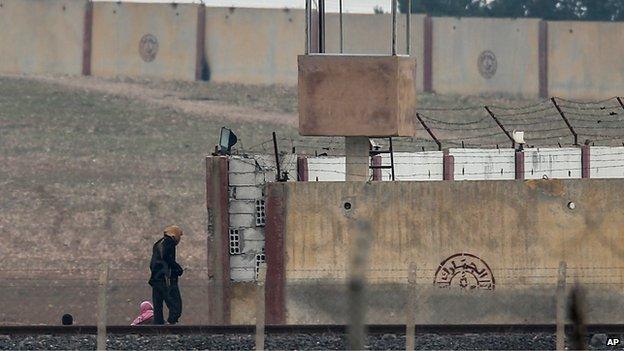
The Turkish border crossing at Tal Abyad is controlled by the IS
Western failures
Though Turkey is co-operating to stop the flow of foreign fighters into Syria, the official said the government had key concerns regarding co-operation with Western intelligence agencies.
He said there were concerns over the failure in intelligence sharing between the Western and Turkish security agencies.
There have been reports that European countries are not willing to share intelligence for fear of compromising ongoing operations.
He also complained about the failure of Western intelligence to prevent the would-be fighters from leaving their countries of origin.
Finally he said that the flow of foreign fighters has been aided by a large human smuggling network, with one foot in Syria and the other in western Europe.
Reintegration 'an issue'
Turkey's attitude towards IS outside its borders is a different issue.
Turkish officials have been open about their reluctance to take a more active role against IS inside Syria, in the absence of a comprehensive strategy by the West towards the regime of Syria's President Bashar al-Assad.
Turkey has called on the West to remove Assad from power, as well as combating IS.
The Turkish official said that the Western governments should come to terms with the fact that not all of these extremists would be killed in battle and some might want to return to their countries of origin, where reintegration will become an issue.
He said it was the view of the Turkish government that the radicalisation of Muslim youth in the West went hand-in-hand with the rise of right wing groups and Islamophobia in Europe.
- Published15 March 2015
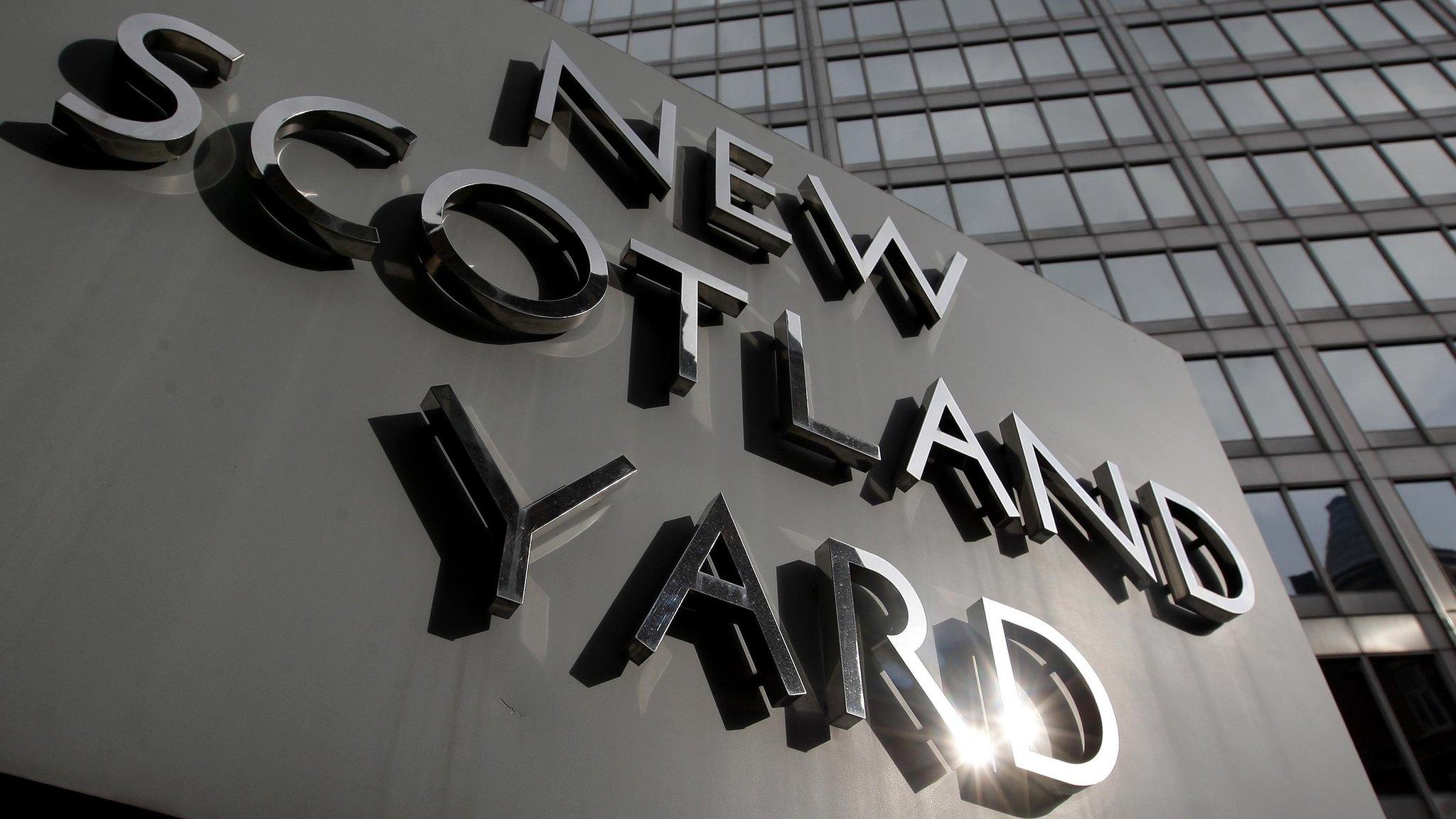
- Published16 March 2015
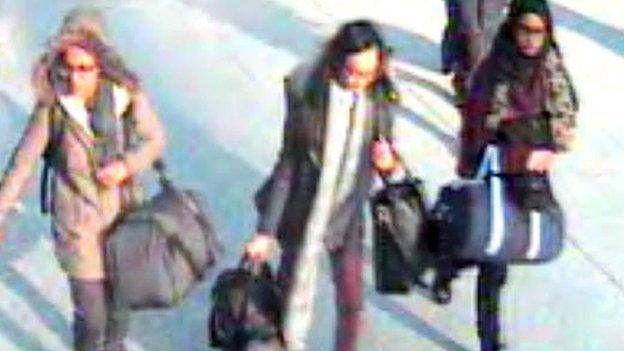
- Published14 March 2015
